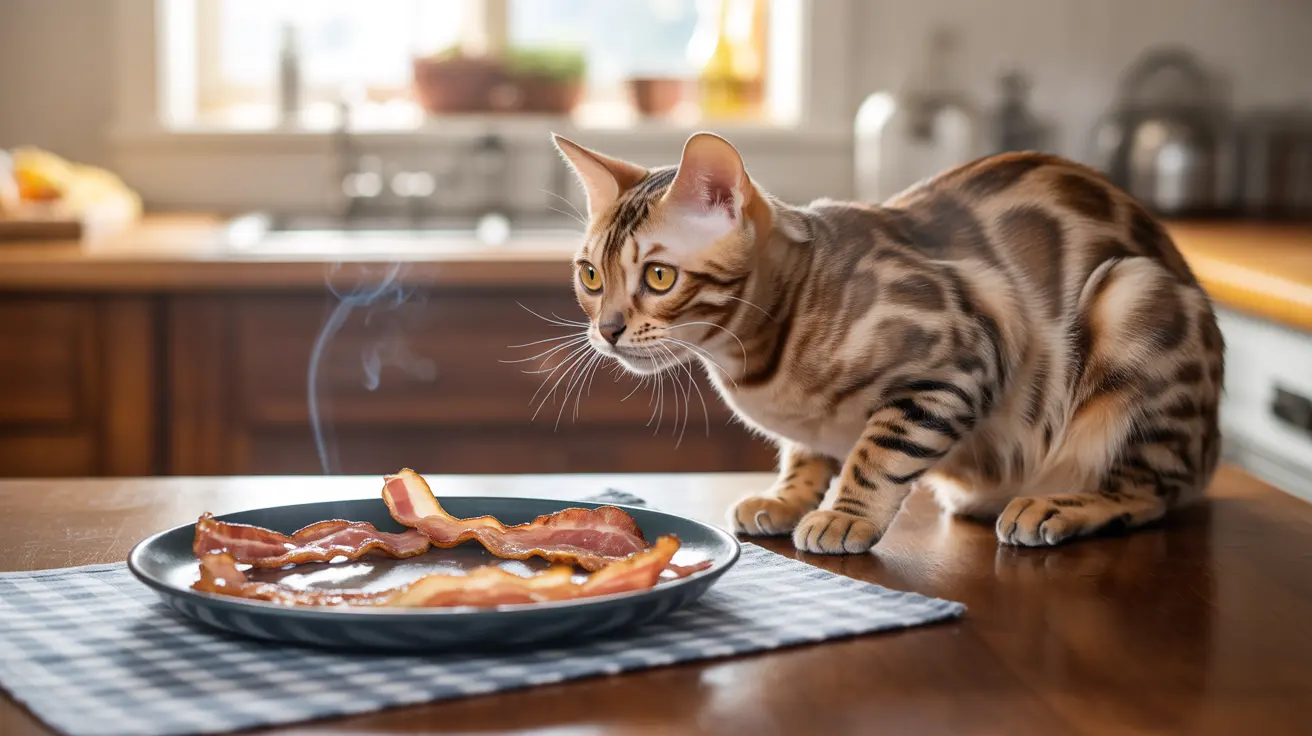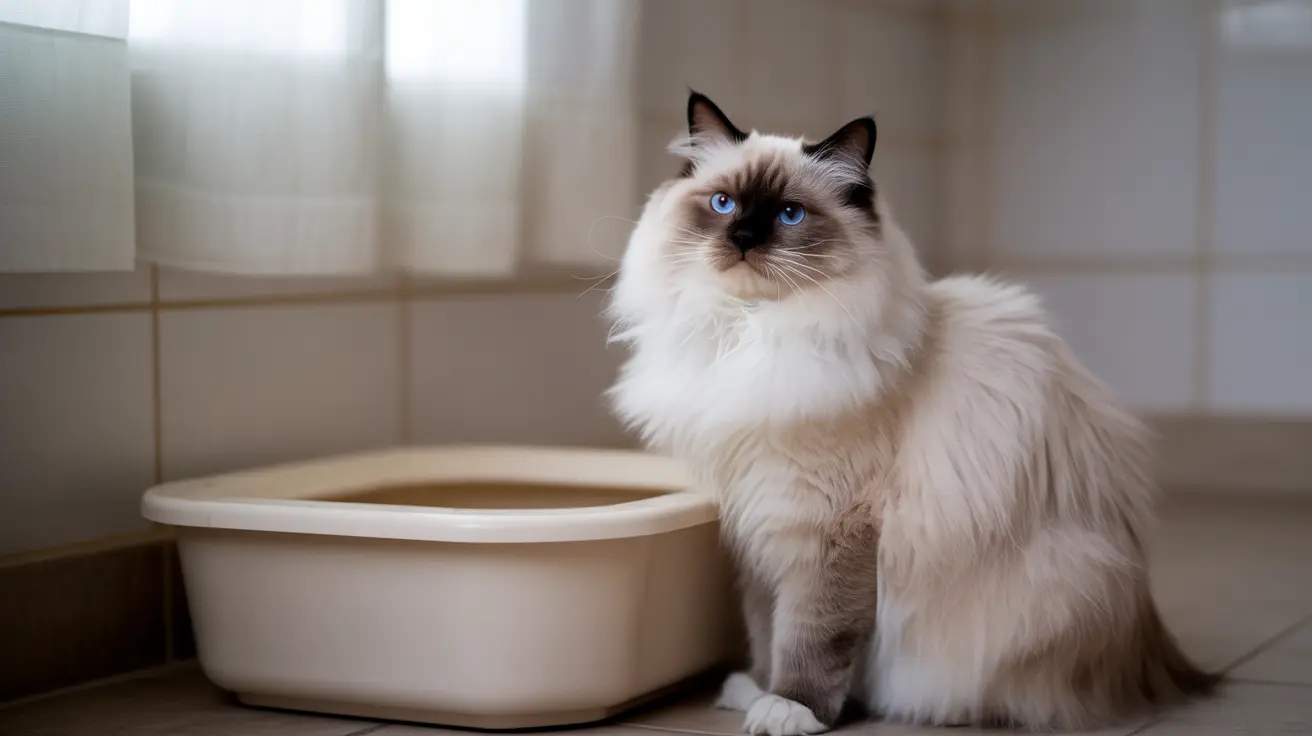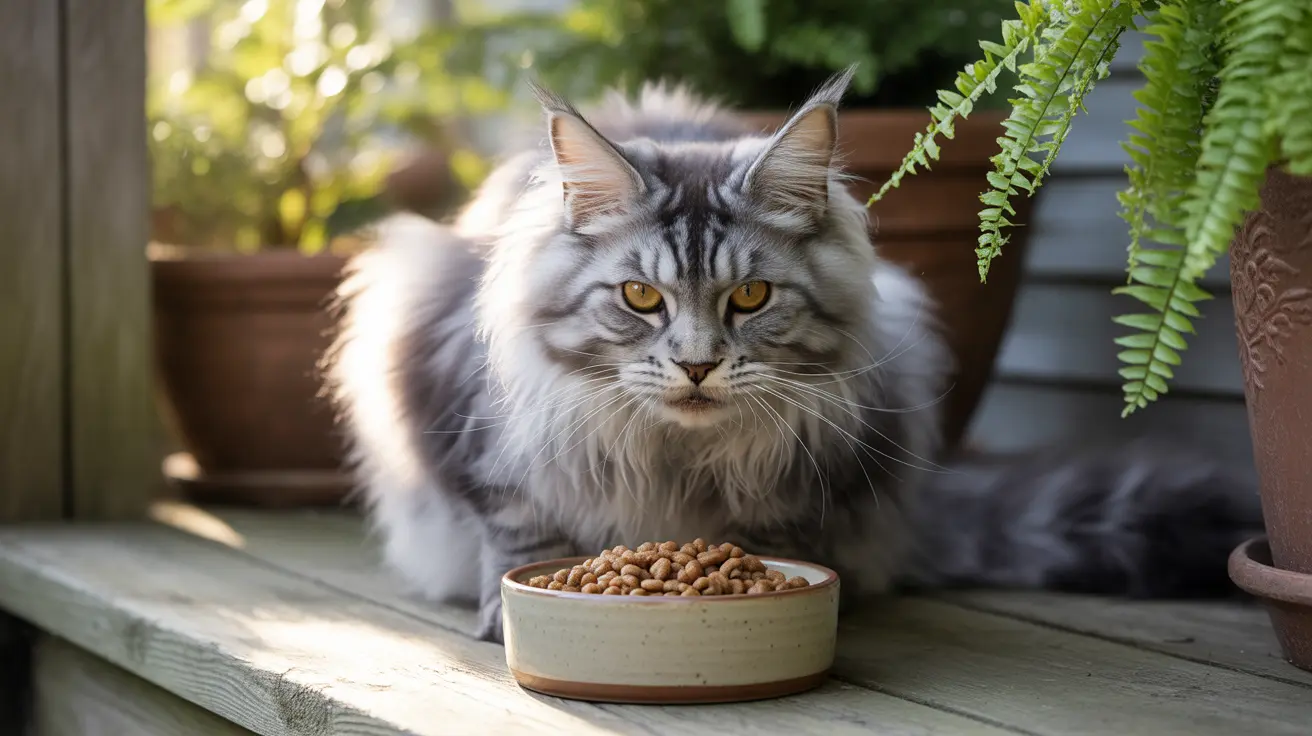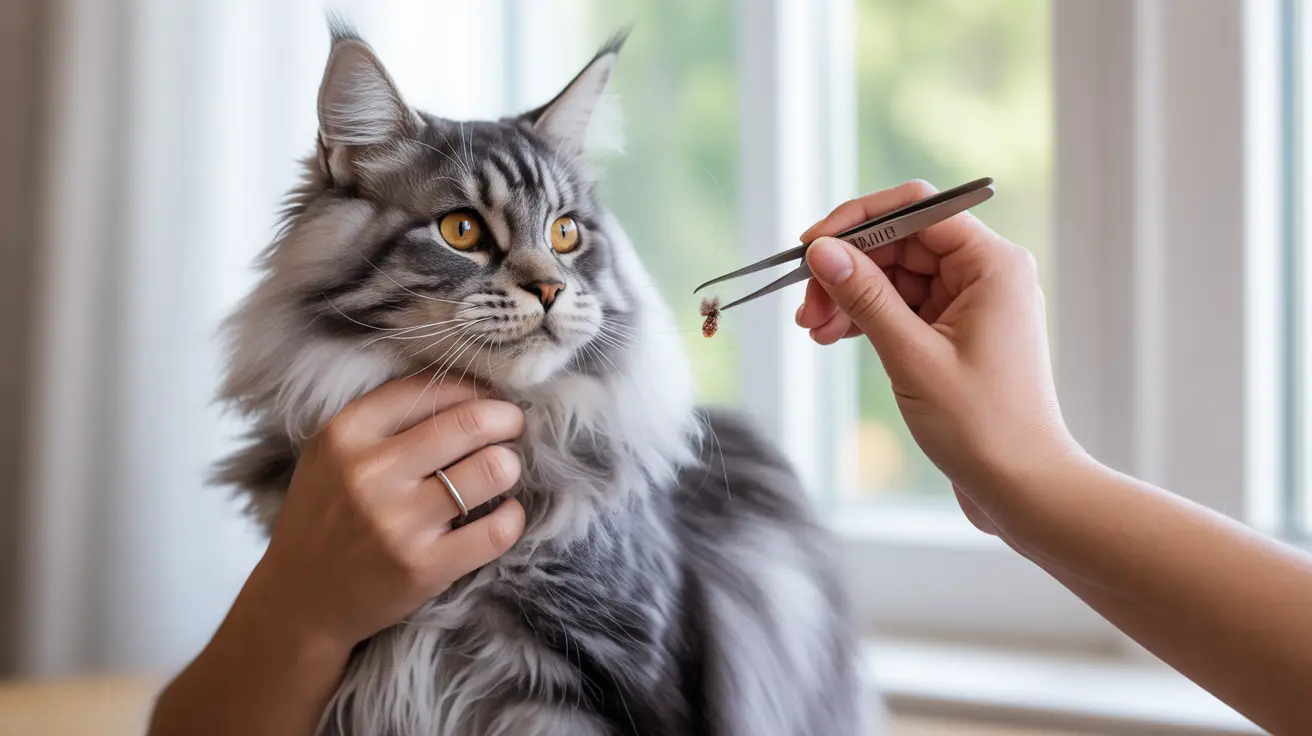If you've ever cooked bacon, you've likely noticed your cat's intense interest in this crispy, aromatic treat. While those pleading eyes might be hard to resist, it's crucial to understand whether bacon is safe for our feline friends. Let's explore the complete picture of cats and bacon consumption, including potential risks and safer alternatives.
As obligate carnivores, cats are naturally drawn to meat products like bacon. However, the processing, high salt content, and excessive fat in bacon make it a problematic choice for feline consumption. Understanding why bacon isn't ideal for cats can help you make better dietary choices for your pet.
Why Cats Are Attracted to Bacon
Cats' powerful sense of smell and natural instinct for fatty meats make bacon an irresistible temptation. The strong aroma, high fat content, and meat-based composition trigger their predatory instincts, making them especially interested in this breakfast favorite. However, this natural attraction doesn't equate to dietary suitability.
The Health Risks of Feeding Bacon to Cats
Excessive Salt Content
Bacon contains dangerous levels of sodium for cats. A single slice can contain up to five times more salt than a cat's daily requirement. This excessive sodium intake can lead to:
- Severe dehydration
- High blood pressure
- Kidney strain
- Salt toxicity in extreme cases
Dangerous Fat Levels
The high fat content in bacon poses several serious health risks:
- Pancreatitis development
- Obesity
- Digestive issues
- Long-term cardiovascular problems
Harmful Additives and Processing
Commercial bacon often contains additives that can be toxic to cats:
- Nitrates and nitrites
- Garlic and onion powders
- Various preservatives
- Artificial flavorings
When Is Bacon Most Dangerous for Cats?
Certain situations make bacon consumption particularly risky:
- Raw or undercooked bacon (risk of parasites and bacteria)
- Cats with existing health conditions
- Elderly cats or kittens
- Cats with sensitive digestive systems
Safe Alternatives to Bacon for Cats
Instead of bacon, consider these healthier treat options:
- Plain, cooked chicken pieces
- Small amounts of cooked turkey
- Commercial cat treats formulated for feline health
- Specially prepared cat-safe meat products
Frequently Asked Questions
Is it safe to give my cat bacon as a treat?
While a tiny piece of cooked bacon occasionally won't likely cause immediate harm, it's not recommended as a treat due to its high salt and fat content, which can lead to health problems.
What health risks can bacon cause in cats if fed regularly?
Regular bacon consumption can lead to obesity, pancreatitis, high blood pressure, kidney problems, and digestive issues. The high salt and fat content makes it particularly dangerous for regular consumption.
Can the salt and fat in bacon harm my cat's kidneys or cause obesity?
Yes, the excessive salt content can strain your cat's kidneys and potentially lead to kidney disease. The high fat content significantly increases the risk of obesity and related health issues.
Are there toxic ingredients in bacon, like garlic or onion, that can poison cats?
Yes, many processed bacon products contain seasonings like garlic or onion powder, which are toxic to cats and can cause dangerous anemia by damaging red blood cells.
What are healthier alternatives to bacon for feeding my cat snacks?
Better alternatives include plain cooked chicken or turkey, commercial cat treats, or small pieces of cooked fish. Always ensure treats make up no more than 10% of your cat's daily caloric intake.
Conclusion
While cats may love bacon, it's best to avoid feeding it to them, even as an occasional treat. The risks far outweigh any momentary pleasure your cat might get from this fatty meat. Instead, focus on providing your cat with nutritionally appropriate treats and a balanced diet designed for feline health.






